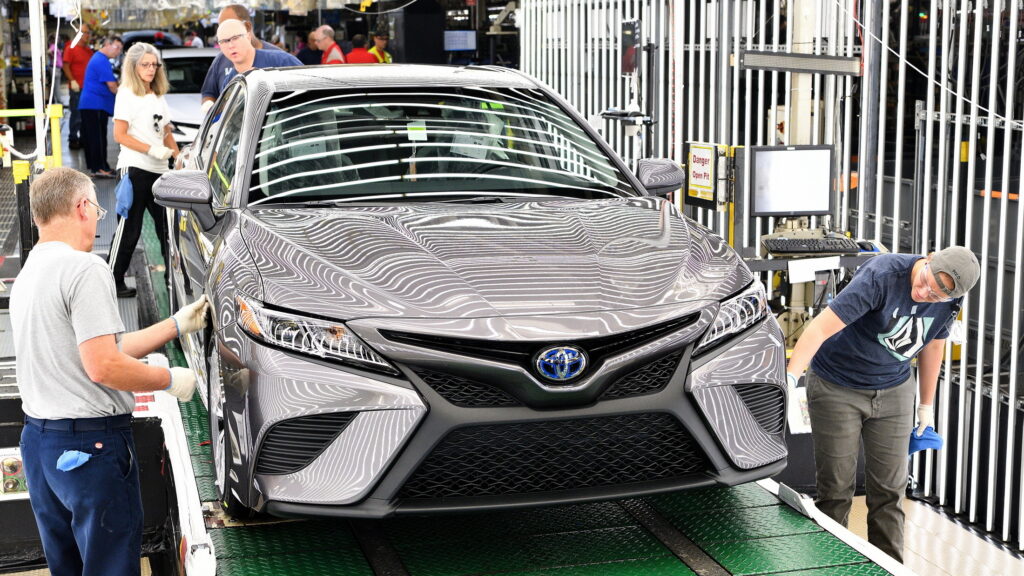One of the great difficulties facing the United Auto Workers (UAW) union over the years has been its inability to break into American factories producing cars from foreign automakers. However, Toyota’s decision to raise hourly wages for its U.S. employees may suggest that it is worried about the union’s appeal following recent deals with the Detroit Three.
Whereas Toyota normally raises its employees’ wages twice a year, the automaker took the unusual decision to raise them a third time in the wake of reports that the UAW has reached tentative contract agreements with Ford, Stellantis, and GM.
Also of note, Toyota increased its workers’ hourly pay by $2.94, reports Autonews. Their last pay increase, which came into effect on September 25, was for just $0.25 per hour. As of January 1, the automaker’s workers will make $34.80 per hour.
Read: UAW, GM Reach Tentative Contract Deal, Potentially Ending Six-Weeks Of Striking

In addition, Toyota decided to cut the length of time it takes for employees to reach the highest pay grade from eight years to four. Paid time off will also be increasing for all employees, whether they’re full time or temporary.
“At Toyota, we take great pride in showing respect for people,” said Chris Reynolds, Toyota Motor North America’s VP of corporate resources, told AN. “We value our employees and their contributions, and we show it by offering robust compensation packages that we continually review to ensure that we remain competitive within the automotive industry.”
While the pay increase will no doubt be welcome news for Toyota employees, it pales in comparison to gains earned by the UAW. Workers represented by the union could see their hourly pay increase by as much as 25 percent, which it says is in line with how much the companies’ CEO pay has increased since 2008, when its members agreed to pay cuts in the wake of the Great Recession.
Following the successes of his negotiating tactics, UAW President Shawn Fain made a direct call to America’s unionized workers, inviting them to demand fairer pay. Whether its success will also help it make inroads with America’s non-unionized autoworkers remains to be seen, but More Perfect reports that it is already talking to Tesla workers, and Toyota appears to be reacting to the deals.





